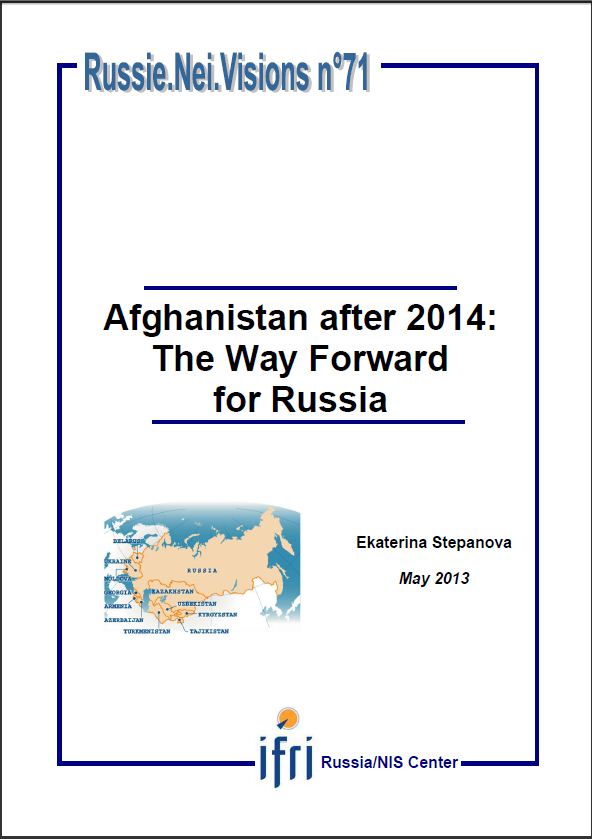Afghanistan after 2014: The Way Forward for Russia

It may appear that Russia is equally dissatisfied with both Western security’s presence in and its departure from Afghanistan planned for 2014, but whether the Western withdrawal is seen as more of a gain a loss depends on how Moscow itself assesses and balances its own security concerns in the region: instability, extremism and narcotics.
At the same time the spill-over of violence and extremism does not pose a direct threat to Russia itself for whom the main implications of U.S./NATO withdrawal from Afghanistan are in Central Asia. Moscow’s main strategy to address potential cross-border repercussions for its Central Asian allies and the increase in Western back-up and transit-related presence in Central Asia is to intensify security and economic cooperation with Russia’s CSTO partners in the region. This will be coupled with keeping a certain distance from Afghanistan, despite the large scale challenge posed by the inflow of Afghan heroin—the most direct Afghanistan-related security concern for Russia. Regarding drug control and counternarcotics in particular, Russia will have to rely on whatever government will be in place in Afghanistan. This explains Moscow’s genuine interest in increasing functionality and legitimacy of the Afghan state, which can only be achieved through an intra-Afghan political process and power-sharing arrangement.
Download the full analysis
This page contains only a summary of our work. If you would like to have access to all the information from our research on the subject, you can download the full version in PDF format.
Afghanistan after 2014: The Way Forward for Russia
Related centers and programs
Discover our other research centers and programsFind out more
Discover all our analysesThe Caspian Sea as an Emerging Energy Hub : Potentials and Limitations
This report analyzes the prospects of the Caspian Sea region — and its key actors except for Russia and Iran — becoming an important energy hub serving the needs of the European Union (EU).
The European Union's Strategic Test in Georgia
The political crisis brewing in Georgia is of an existential nature for the country. What is at stake is Georgia's future as a democratic and sovereign European nation (EU).
Commanders of Putin's Long War: Purged, Reshuffled and Disgruntled
The trend of reshuffling the Russian top military command in the course of a fast-evolving and far from successful war has progressed unevenly both across the Armed Forces’ structures and in time. The rationale for and timing of the abrupt cadre decisions made by Commander-in-Chief Putin often defy logical explanation, and the rare official clarifications are no more informative than the usual information blackout.
Russian Military Manpower After Two and a Half Years of War in Ukraine
In addition to a military victory in Ukraine, the Russian leadership is planning to build up sizable troop formations for a possible conflict with NATO in the Baltic region and the Kola Peninsula. In particular, current plans aim for the military manpower to grow by about 350,000, reaching a total of 1.5 million soldiers and commanders. In the context of the current conflict in Ukraine, this cannot be accomplished without a new wave of mass mobilization.









